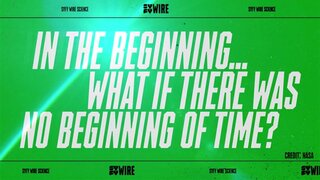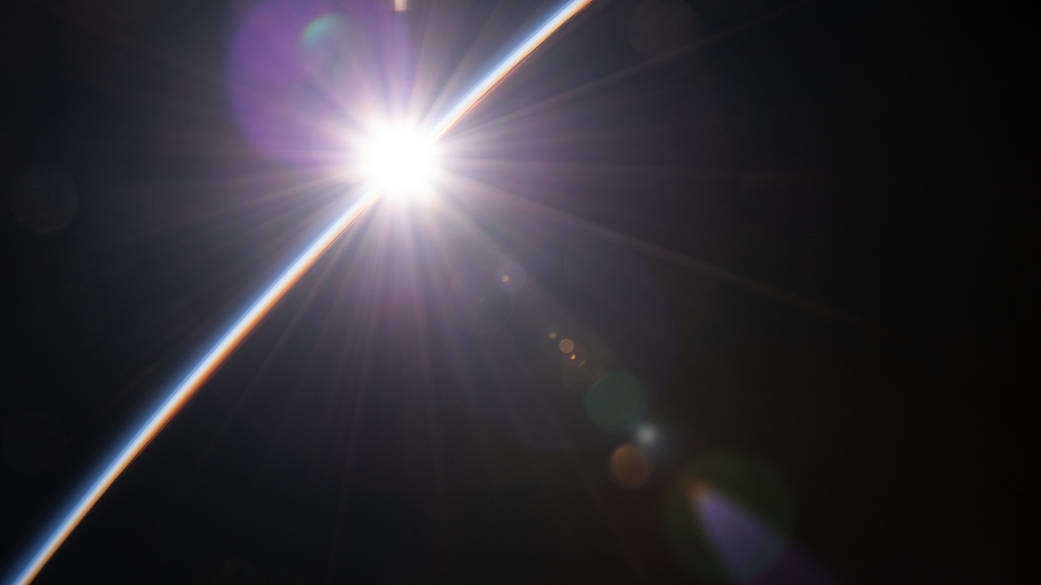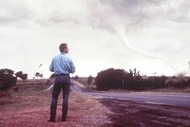Create a free profile to get unlimited access to exclusive videos, sweepstakes, and more!
In the beginning… what if there was no beginning of time?

There is something unnerving about hearing a somber voice intone “In the beginning”… but wait. What if the beginning of time is no more real than the sci-fi movies you hear it in?
Could the Big Bang have never really happened? Will there be no end to the universe? Is everything in between, even the passage of time, just an illusion? Physicist Bruno Bento is now proposing that the universe may have had no beginning at all, meaning it did not just blow up out of nothingness, expanding rapidly from a few atoms into an expanse too vast for the human brain to fathom. What we perceive as the past and future may be infinite.
Bento didn’t just wake up one morning and decide that the universe didn’t suddenly explode into being about 14 billion years ago. Turns out that general relativity does not hold up with singularities like black holes and the Big Bang. He and his colleagues recently posted a study on the preprint server arXiv, in which they used causal set theory to propose that space and time may not be what we think they are.
“Sometimes, general relativity gives us infinities that we do not consider to be physical,” he told SYFY WIRE. “This is what we mean when we say it breaks down — we need something else, something new, to describe regions of strong gravity where it does not provide a physical answer.”
Most scientists believe Einstein is right about general relativity, or the idea that our perception of gravity arises from the curve of space and time. Some phenomena insist on bending that theory and could possibly break it in the future. Black holes are dangerous territory for general relativity because there are too many aspects of them we cannot see. Though there is not enough evidence to disprove it (yet), the inability of any instrument to observe gravity inside a black hole, from which light cannot escape, raises controversial questions.
The thing about black holes and other weird gravitational phenomena is that general relativity cannot fathom the extreme size and energies involved. There is a threshold it cannot cross when you are dealing with singularities, or parts of spacetime where everything we think we know about physics suddenly starts to fall apart. Gravity gains almost unfathomable strength at minuscule scales in a singularity. Even if there is something that can explain black hole innards or the hypothetical Big Bang, we have to find out what that is. Enter causal set theory.
“Spacetime is fundamentally discrete in causal set theory,” said Bento. “It is a causal set. This means that there is a minimum possible distance between any two events, both in space and time. We don't know exactly what this minimum scale is, there are currently no experiments that can probe these scales.”
Because you can’t exactly go into a lab and test this out, theoretical physics may be able to offer some closure. Bento believes that how the breakdown of general relativity happens could mean the Planck scale, which declares a minimum limit for the universe, may be able to pick up where it left off. Breakdown could still happen past that limit. However, that scale may be small enough to possibly reveal things beyond the realm of human observation.
What this means for the passage of time is that an element in a causal set is an event, or a specific point in spacetime. Elements is created whenever corresponding events start to happen. “Now” is the emergence of such an event. What is seen as a “causal set” is supposed to grow from the first element onward, adding new elements on top of the set, so the passage of time means that one element after another comes into being. “Past” is all the elements that already emerged. “Future” is those that are still coming up.
“In causal set theory, the passage of time was used as an input when constructing a dynamics for causal sets, or how a causal set (a universe) should behave,” Bento said. “One consequence of this is that the past is finite and the universe has a beginning.“
But wait. How, then, can there be no end and no beginning? That lies in how Bento and his team see possibilities in causal set theory. The set could potentially grow in either way, up or down, and if it can grow in the direction of the past and the future, and if it can do that, it means that there is no end or beginning. What we think of as “time” might just be a way of trying to understand something that would otherwise make our brains explode.
What is really surprising is that Bento thinks the universe would still look exactly the same without a Big Bang. It isn’t that general relativity just vanishes. It can still explain everything that direct observations can be made on, whether by telescope, the naked eye or otherwise. So our solar system and everything observable in it is real. Earth is real. We ourselves are real.
“The problem appears when we cannot see,” he said. “That being said, it's usually accepted that a Big Bang singularity does not exist (nor do black hole singularities). The debate is in what will replace them and how.”
Now try to go to sleep at night thinking about that



























